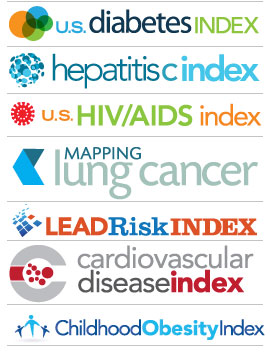Posted by National Health Index
Medicare News
Monday, July 23rd, 2012
Cms.gov: Monday, July 09, 2012 The Centers for Medicare & Medicaid Services (CMS) announced today that as of July 1, 88[i] new Accountable Care Organizations (ACOs) began serving 1.2 million people with Medicare in 40 States and Washington, D.C. ACOs are organizations formed by groups of doctors and other health care providers that have agreed to […]
Posted by National Health Index
Medicare News
Monday, July 23rd, 2012
The commission tells Congress that ACOs and payment bundling could prove flexible enough to move the system away from the downsides of fee for service. Aama-assn.org: By CHARLES FIEGL, amednews staff. July 9, 2012. Washington Physicians must be given flexibility in how they participate in new Medicare payment models for care coordination efforts to be successful, according to a new […]
Posted by National Health Index
Medicare News
Monday, July 23rd, 2012
Cms.gov: Friday, July 06, 2012 The Centers for Medicare & Medicaid Services (CMS) today announced proposed changes to the Medicare home health program for 2013 that would foster greater efficiency, flexibility, payment accuracy and improved quality. In the proposed rule, on display in the Federal Register today, CMS proposes to reduce Medicare payments to home health […]
Posted by National Health Index
Medicare News
Monday, July 23rd, 2012
A small percentage of challenging cases, often at the end of life, make up the great bulk of Medicare spending on hospital care. Are we anywhere close to containing the costs? Online.wsj.com: July 6, 2012, 7:13 p.m. On Valentine’s Day 2009, Scott Crawford, 41 years old, received the break that he thought would save his life. […]
Posted by National Health Index
Stroke News
Saturday, July 21st, 2012
Onlinelibrary.wiley.com: JULY 19, 2012. Stroke unit care offers significant benefits in survival and dependency when compared to general medical ward. Most stroke units are either acute or rehabilitation, but comprehensive (combined acute and rehabilitation) model (comprehensive stroke unit) is less common. Aim To examine different levels of evidence of comprehensive stroke unit compared to other organized […]
Posted by National Health Index
Stroke News
Saturday, July 21st, 2012
Jjama.jamanetwork.com: July 18, 2012 There is increasing interest in reporting risk-standardized outcomes for Medicare beneficiaries hospitalized with acute ischemic stroke, but whether it is necessary to include adjustment for initial stroke severity has not been well studied. Objective To evaluate the degree to which hospital outcome ratings and potential eligibility for financial incentives are altered after […]
Posted by National Health Index
Stroke News
Saturday, July 21st, 2012
American Heart Association: July 17, 2012. The current self-initiated approach by which hospitals acquire Primary Stroke Center (PSC) certification provides insufficient coverage for large areas of the United States. An alternative, directed, algorithmic approach to determine near optimal locations of PSCs would be justified if it significantly improves coverage. Methods—Using geographic location–allocation modeling techniques, we developed […]
Posted by National Health Index
Stroke News
Saturday, July 21st, 2012
American Heart Association: July 17, 2012. Public Awareness Program for Immediate Detection of First Symptoms The capacity of the general population to identify stroke signs is a major determinant for success of prehospital emergency pathways. Previous educational strategies using the media were usually short-lived and expensive. Tailoring information programs for special subgroups like acute stroke relatives […]
Posted by National Health Index
Stroke News
Saturday, July 21st, 2012
American Heart Association: July 10, 2012. Study Highlights: Stroke patients receive faster treatment when emergency medical services (EMS) personnel notify hospitals a possible stroke patient is en route. However, emergency personnel fail to alert hospitals of incoming stroke patients in nearly one-third of cases. Researchers say improved stroke care systems can address geographical and other factors […]
Posted by National Health Index
Medicare News
Saturday, July 21st, 2012
National Academy of Sciences: July 17, 2012. Medicare, the world’s single largest health insurance program, covers more than 47 million Americans. Although it is a national program, it adjusts payments to hospitals and health care practitioners according to the geographic location in which they provide service, acknowledging that the cost of doing business varies around the […]

